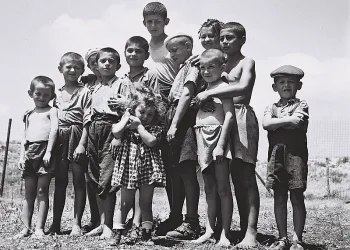The European Union has stepped up its diplomatic role amid rising tensions between Israel and Iran, reaffirming its commitment to de-escalation and non-proliferation.
Following an informal videoconference of the Foreign Affairs Council, EU High Representative Kaja Kallas shared the bloc’s unified message: a call for calm, cooperation, and a renewed focus on the Iran nuclear program.
Coordinated Civil Protection and Diplomacy
Kallas emphasized two key outcomes from the meeting. First, a clear strategy to assist EU citizens in the Middle East through coordinated evacuations. Second, a strengthened diplomatic front aimed at preventing nuclear escalation and regional warfare.
-
EU Member States are coordinating flights for evacuations, sharing logistics where individual capacity is limited.
-
Civil protection experts and the EU’s ASPIDES naval mission are actively supporting maritime security.
Escalating Conflict Spurs EU Engagement
The recent exchange of attacks between Israel and Iran has alarmed the international community. EU ministers urged all sides to exercise restraint and avoid further provocation.
Kallas noted the importance of re-engaging diplomatically as U.S.–Iran nuclear negotiations falter.
| Main Issues Discussed | EU Position |
|---|---|
| Iran nuclear program | No nuclear weapons; diplomacy essential |
| Israel-Iran conflict | De-escalation urged |
| Gaza humanitarian crisis | Aid access, ceasefire, hostages release |
| Russian airstrikes on Kyiv | Condemned as civilian targeting |
| Energy market instability | Coordinated EU response planned |
Iran Nuclear Program: EU’s Pivotal Role
Kallas stated unequivocally: “Iran cannot have a nuclear bomb.”
The EU remains committed to leading a diplomatic initiative similar to the successful 2015 JCPOA agreement.
Recent breaches of non-proliferation commitments by Iran, as reported by the International Atomic Energy Agency, underline the urgency.
Tensions Threaten Broader Regional Stability
Beyond the nuclear threat, the EU is closely monitoring risks of a wider regional spillover.
Civilian evacuations, protection of commercial shipping, and energy market stability were all addressed with practical urgency.
Gaza, Kyiv, and Broader Responsibilities
Despite heightened focus on Iran, the EU has not lost sight of Gaza.
Ministers reiterated calls for:
-
Immediate and full humanitarian access
-
Ceasefire and hostage release
Simultaneously, Russia’s intensified bombing campaign in Kyiv drew sharp condemnation. Kallas dismissed any suggestion of Russia playing a peace-brokering role, citing its ongoing aggression and ties to Iran’s military activities in Ukraine.
Monday’s Formal Council
The next Foreign Affairs Council, scheduled for Monday, will explore concrete actions. A particular focus will be the ongoing Article Two review of Israel’s Association Agreement.
Kallas confirmed the review is in progress and will be discussed further next week.
The Takeaway
Europe is entering a defining moment for its foreign policy. By reinforcing humanitarian principles and reviving diplomatic leadership around the Iran nuclear program, the EU seeks not only to prevent war but to restore balance in a rapidly destabilizing region.
Sources: European Union.
Prepared by Ivan Alexander Golden, Founder of THX News™, an independent news organization delivering timely insights from global official sources. Combines AI-analyzed research with human-edited accuracy and context.







